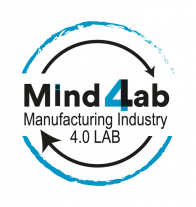"Dipartimento di Eccellenza 2018-2022" project
The Department of Management and Production Engineering (DIGEP) is the reference structure at the Politecnico di Torino for the study of technological, economic and organizational systems of production of goods and services. In doing so, it combines engineering tradition and competences with the skills of business management, economics and law.
DIGEP promotes fundamental and applied research, technology transfer and services to the territory in the areas of process technology, quality, product design, innovation management, business management and plant engineering, economics and law, related to production systems. The current set of skills has been built in time by integrating technological issues with managerial, economic and legal ones. DIGEP promotes relations with national and international institutions, as well as the interaction with the entrepreneurial world and the technology transfer. The Department's approach is strongly interdisciplinary and transcultural. thereby allowing the Department--within the national and international scientific community--to be a promoter, investigator and potential developer of research activities which can be grouped in the following areas.
The Department's approach is strongly interdisciplinary and transcultural. thereby allowing the Department - within the national and international scientific community - to be a promoter, investigator and potential developer of research activities which can be grouped in the following areas
- Managerial economics and business law, markets and new technologies
- Management of innovation and operations
- Engineering system and logistics
- Advanced manufacturing processes
- Design, management and quality of manufacturing processes and products
As for the strong points, the most remarkable one is the presence of strongly interdisciplinary research groups, with a transversality ranging from the technological areas to legal and economic ones up to the mathematical sciences. Specifically, the ability to be a “high value added provider” for other departments emerged in the field of basic and applied research on technological domains. The ability to understand industrial change and social, economic and legal impact of innovation, the skills related to the protection of intellectual property and corporate governance are assets to offer “turnkey” work packages to various projects developed by the Politecnico or to provide, both internally and externally, support for entrepreneurship. The specialization on manufacturing production systems and processes makes DIGEP a natural trait-d’union with other “vertical” departments, specialized in technological aspects, allowing to understand the methods of industrialization, but also with those departments which deal with social and human aspects, such as the Departments of Architecture, with which there has been a significant collaboration, with particular reference to the aspects of Industrial Design, which are naturally integrated into the cultural areas of DIGEP. As for training, the strongest point of DIGEP is the creation of a successful professional figure as the management engineer with high integration capacity and able to work transversally in different areas, a skill of fundamental importance nowadays given the increasing complexity of products and processes.
As for weaknesses, the limited size of DIGEP makes it difficult to explore new research and training paths that would be needed in the light of the current change of technological paradigm. Internet of Things in production system or Additive Manufacturing trends have profound implications on product design and development, production processes, planning and control, human resources, regulation and management of market relations. Additional resources would be needed to properly explore all these aspects. In relation to the teaching activity, the low ratio between the number of teachers and students is perhaps the most significant problem. Finally, the marked increase of the students enrolled in the Degree and Master's degree courses represent a serious challenge for labs capacity. DIGEP is trying to identify the necessary resources to broaden its educational supply and ensure adequate training for students, and this project can provide a significant contribution to overcoming these critical issues.
The project is presented hereafter, with particular reference to
-
The overall development goals of the department
-
The overall development strategies of the project
-
Infrastructures
-
The monitoring of the project
-
Publications
-
Achievements
-
Further dissemination

